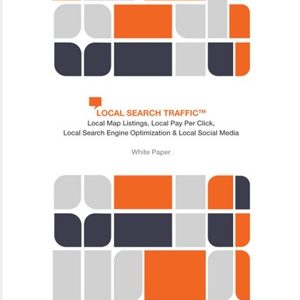
Citations are one of the key factors in local SEO. Many new SEOs begin their careers by managing citations for stakeholders.
When set up correctly, citations can be really easy to manage and can lead to improved local rankings.
However, if done incorrectly, citations can be a nightmare to clean up.
In this guide, I’ll walk you through every facet of citations to help you improve your local SEO strategy.
What Are Citations?
Citations are an online reference to a business that features the business’s name, address, and phone number (NAP).
Typically, when an SEO refers to citations, they are talking about a group of individual business listings on various sites.
Most citations take the form of an online business directory, but other types of citations exist.
While the minimum amount of information required for most citations is just a name, address, and phone number, most websites offer many more opportunities to add additional information.
Types of Citations
There are several different types of citation websites out there, and many SEOs argue about which are more valuable than others.
However, for local SEO, the SEO community generally agrees that the following citations are “must-haves.”
- Google My Business
- Bing Maps
- Yelp
There are hundreds of potential websites to list a business online, but not all of them may be relevant for your business. That’s why citation categories exist.
There are many types of citations for many different types of businesses. Attorneys, healthcare, real estate, you name it; a category exists.
While some citations have a higher domain authority than others, the category relevancy is more important than the domain authority. That’s why getting listed in these industry categories is critical.
Link Building vs. Citations
Some SEOs mistakenly group citations management into link building.
While this does involve building links for a website, the intent is much different. Search engines like Google claim to be able to know the difference.
Why Citations Are Important
Improve Local Rankings
Citations are considered a ranking factor for local SEO. Having your business listed in trusted online directories sends signals to Google to improve their degree of certainty that your business exists.
The quantity of listings, the accuracy of your listings, and the quality of the online directories can affect how Google perceives your online presence.
This is why it’s important to pick your citations wisely.
Piggyback Page One Results
Another underreported benefit of building citations is that some online business directories dominate page one of local search. Sites like Yelp and Yellow Pages tend to consistently rank high for most local searches.
So if you can’t beat them, join them! These online directories provide other opportunities to earn real estate on page one.
Earn Referral Traffic
Many people are loyal to different citations, such as Yelp for restaurants. Many foodies are trained to go to Yelp when looking for new restaurants before going to Google.
Getting listed in as many potential directories as possible may earn valuable referral traffic.
How to Pick the Right Citations
With all the citations out there, you may not be able to get your business listed in all of them. Whether it be time or cost restraints, you may find yourself struggling to narrow down your list.
Just because the quantity of citations is important, you shouldn’t stress yourself out because you can’t list your business in all of them. Guess what? That’s probably a good thing!
If you’re using a tool, you may have limits to how many directories they sync with.
When deciding which citations to list your business in, a good rule of thumb is to start with the online business directories that are most relevant to your industry.
There are several online lists of top industry citations by business category.
After establishing your list of industry-specific online business directories, you’ll want to get a list of general citations. BrightLocal has a great list of some of the most popular directories.
The best online business directories are ones that potential customers actually use.
For example, many people use directories like HealthGrades to actively search for a doctor. This directory not only establishes relevance for healthcare companies but also can drive referral traffic.
Tools to Help Manage Citations
There are many different tools out there to help you manage your online business directories. All of them vary in cost, features, and functionality, but most of them use the same citations.
This can make it difficult to decide which tools to use. However, there are several things to consider when looking for the right listings management tool.
What to Look for in Citation Management Tools
Here are some things I always look for when deciding which tool to use.
Citation variety:
- Does the tool offer the option to select industry-specific directories?
- Does the tool allow you to select specific directories or does it pick for you?
How does the tool set up the citations?
- Does it have a direct API to the directories?
- Does it use aggregators?
Does it offer duplicate suppression?
- How easy is it to manage suppressing duplicates?
- How accurate is the duplicate detection?
Tracking:
- What kind of tracking features does the tool offer?
- How accurate is the tracking?
- Can it sync to other tracking tools?
Price:
- Does the price per location fit my budget?
- How does it compare to other tools with the same features?
How to Optimize Citations
Citation management is more than just putting your business out there. To really optimize your online presence, there are a few factors to keep in mind.
NAP Consistency
NAP consistency refers to having consistent name, address, and phone numbers across all listings. There have been several independent studies that have shown that having a consistent NAP listing may be a factor in local SEO.
Descriptions
Business descriptions can help improve local rankings by adding in your top keywords. It can also help search engines better understand your business.
Website Link
Many businesses just link to their home page. However, a better approach is to link directly to the location page. This reduces steps for users to get the information they’re looking for and has the same effect for search engines.
Business Category
Some citations, such as Google My Business, allow you to select secondary categories. This may help you rank for secondary targeted keywords.
Photos
Adding photos of your business may help improve customer conversion rates and may help you rank in image searches, if optimized properly.
My tip for optimizing images is to optimize the image file name and alt text if the directory gives you the option.
Reviews
Having great reviews not only helps you earn new business but can also improve your rankings. Google looks at review sentiment on third-party sites to gauge the quality of businesses.
How to Track & Measure the Value of Citations
Listings management is an investment. Your stakeholders will want to know if that investment is paying off.
Many tools offer different ways to track citation statuses and performance. However, there are a few steps you can take to help cover your butt when it comes time to report the fruits of your labor.
How to Track Citation Statuses
Some tools have open APIs with directories that help keep citations live. However, some tools simply establish listings and leave it at that.
Sometimes businesses can lose citations for a variety of reasons, so it’s important to track the status of your citations.
If your tool of choice doesn’t offer any way to keep track of your citations, then I recommend using other third-party tools to keep track of their statuses.
Author’s Note: I’m not endorsed by any of the tools below. Just a fan and use them daily.
Little Warden
This is a paid tool, but really affordable. You can use this tool to monitor the response codes (and much more) of multiple URLs. Setting this can quickly notify you via email if any of your citations disappear.
Screaming Frog
There is a free version, but I recommend the paid version of this tool, which is also very affordable. You can create scheduled crawls of URLs to check their response codes.
How to Track Citation Performance
While many tools can track varying degrees of performance, none of them can track how they perform on your website.
While you can certainly track individual site performance via the acquisition report, you can’t track global effort performance without creating a custom report.
A far simpler option would be to add UTM tracking to URLs and add the same Campaign or Source name to your URLs.
Using this method, you can simply search in Google Analytics for “citation” under the Source/Medium report.
More Resources:
- Local SEO: The Definitive Guide to Improve Your Local Search Rankings
- A 50-Point Audit for Getting Started with Local SEO
- 9 Essential Local SEO & Listings Management Tools



